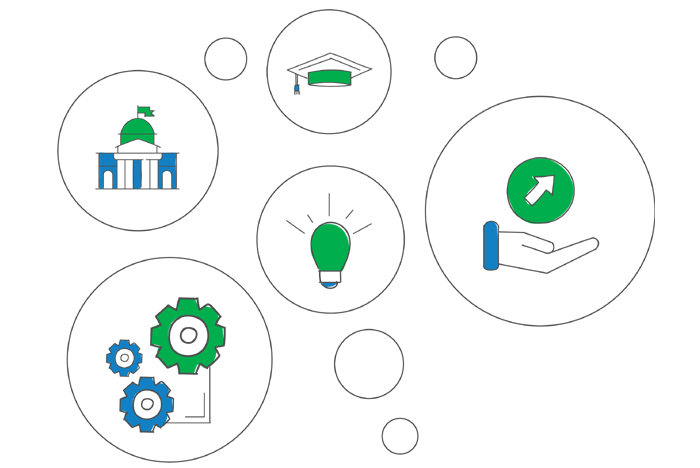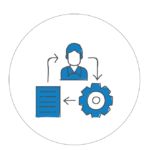Creating excellence in government schools to improve the quality of education offered in public schools in India.
Our Approach
Over the years, TEA has evolved its engagement with the government to a two-pronged approach towards education system transformation.

Excellence in Government Schools
Creating excellence in government schools to improve the quality of education offered in public schools in India

Excellence in Government Schools
TEA demonstrates impact through innovation across multiple levers

Pedagogy /
curriculum

School
Culture

Non-academic
Management Practices

Teacher
Training

Leadership
Development
Introduction of accountability mechanisms such as Steering committee meetings, data-driven monitoring etc
Sustainability when government scales inputs and accountability measures

System Reform
Long and deep engagement with Governments for System Capacity Building
Conduct a diagnostic to identify school and system-level gaps.
Reform measures comprise of a diverse set of interventions
Robust mechanisms for system alignment, M&E for acceptance, and accountability at all levels.
Strategic roadmap and
execution support over a
3-5 year window.
Design & implement
interventions for scale
and sustainability.

The Education Alliance, registered as Network for Quality Education Foundation (NQEF) is a non-profit organization established in 2014 with the aim of enabling partnerships for quality education.
Quick Links
Contact Information
Registered Address:
1002, Kailash Building,
10th Floor, Kasturba Gandhi Marg,
New Delhi 110001
info@theeducationalliance.org
1002, Kailash Building,
10th Floor, Kasturba Gandhi Marg,
New Delhi 110001
info@theeducationalliance.org
© Copyright 2020


